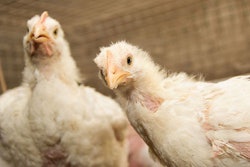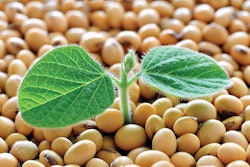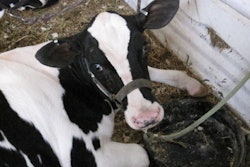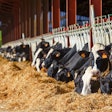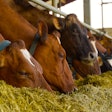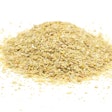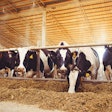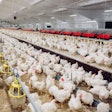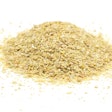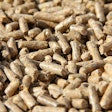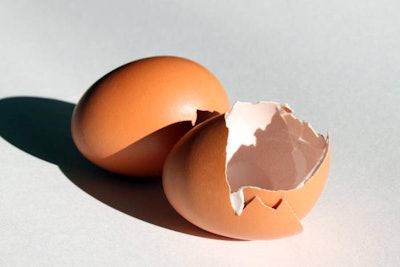
As the egg contains 94% calcium carbonate, dietary calcium problems are often associated with eggshell quality problems.
A single eggshell weighs about 5-6 grams, and of these, at least 2 grams are pure calcium. Even a marginal deficiency in calcium will first reduce and then cease ovulation to protect bone integrity. The immediate result of inadequate calcium intake is an increase in cracked eggs and eggs with very thin eggshells. When such problems appear, part of the evaluation process involves checking factors that affect calcium intake and calcium utilization.
The following tips can help ensure layers receive the calcium they need to maintain high levels of production and eggshell integrity.
- Calcium concentration in the feed must be at least 4%. In general, hens require at least 4 grams of calcium per day at the beginning of their cycle, and as much as 4.5 toward the end.
- The major source of calcium in feed should be calcium carbonate (not always the same as limestone) composed of medium (less than 1 mm) and large (2-5 mm) particles, in a mix preferably 50:50.
- Certain organic acids may improve calcium absorption, especially in hens toward the end of their production cycle.
- Oystershell (coarse) can quickly remedy problems caused by feeding too fine limestone. Although it is more expensive, it is often preferred for its superior quality.
- Ensuring hens have access to calcium toward the late afternoon hours, when eggshell calcification peaks and calcium appetite increases, will ensure maximal and continual eggshell integrity.
- Chloride levels in feed should not exceed 0.4% as excess chloride aggravates calcium deficiency, especially during the summer months. Excess metabolic chloride depresses production of carbonate required for the formation of calcium carbonate during egg calcification.
- Vitamin D is involved in calcium absorption, so adequate levels should be added in the feed. Adding at least 3,000-4,000 units per kg finished feed should be adequate for most situations.

